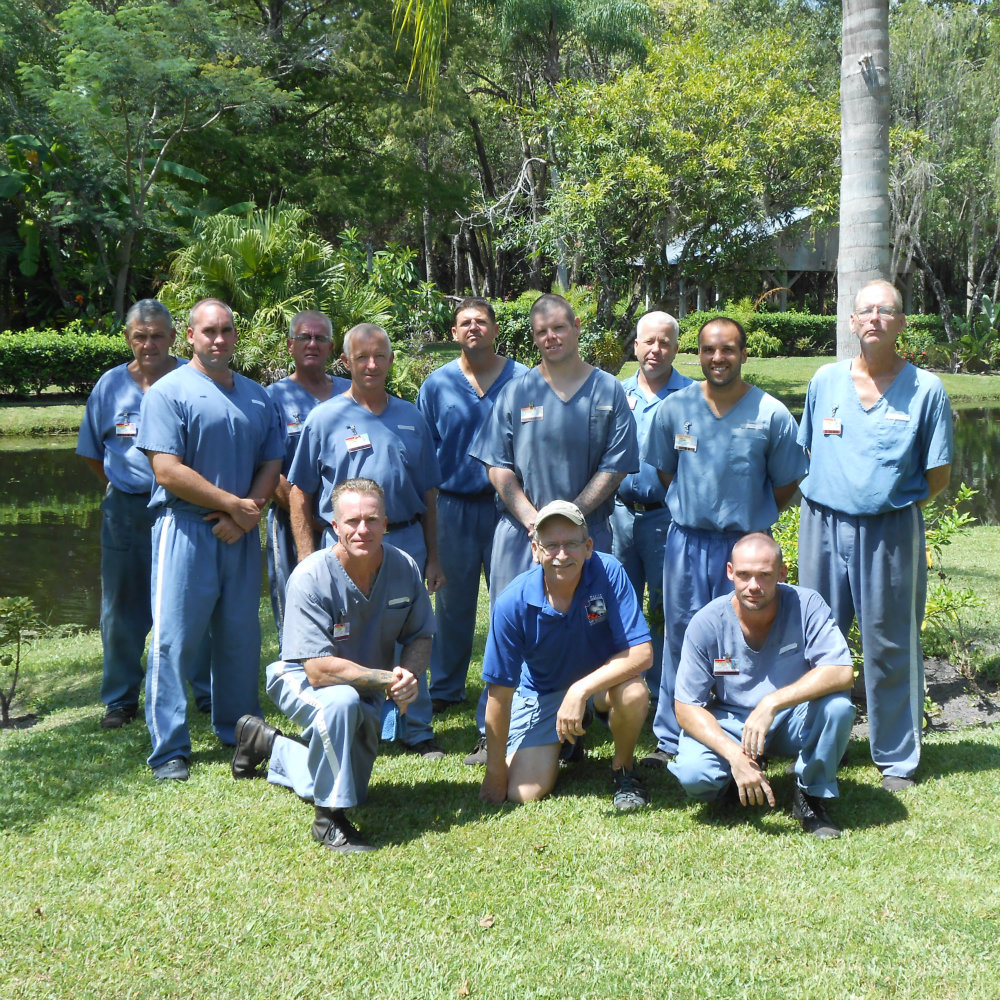Digging a path to rehabilitation

Can doing time in the garden help a person heal? University of Florida horticulturalists and Master Gardeners say not only is it therapeutic, it’s the key to growing a new life after prison.
At Avon Park Correctional Institution, some inmates are learning the art of horticulture and opening doors to new careers, thanks to faculty and volunteers with the UF Institute of Food and Agricultural Sciences Extension Highlands County.
The UF/IFAS Extension program prepares inmates for a career in Florida’s nursery and landscaping industries, said David Austin, horticulture agent and Master Gardener coordinator for UF/IFAS Extension Highlands County. For the past two years, Austin and master gardener volunteer Charlie Reynolds have helped inmates master the practical horticultural skills they’ll need to pass the Florida Nursery, Growers and Landscape Association’s certification exam.
The FNGLA certification is a widely respected credential for green industry professionals in Florida, and it is mandatory for anyone working in a Florida nursery, Reynolds explained. Last year, all 11 class members passed the test with a score of 90 percent or better. Two students from the group have since left prison and are now working in the nursery industry.
“This kind of training is different than the kind of apprenticeship other inmates get in a woodworking or welding class, for example,” Austin said. “Now they have proof of formal training that will mean a lot to those in the business.”
The certification program, known as “Therapy Through Plants,” got started when Tommy Sauls, an officer at Avon Park Correctional Institution, asked if Reynolds would help inmates who worked in the prison’s greenhouses become master gardeners. However, Austin, Sauls and Reynolds eventually determined that FNGLA certification training would have a bigger long-term impact. In addition to FNGLA certification, some inmates were trained and licensed in pesticide application.
Reynolds and Austin partnered with Merry Mott, director of certifications and career development with FNGLA, to provide students with copies of the certification training manual, which cut down on the program’s cost.
In addition to preparing for the exam, participants get hands-on experience propagating and caring for ornamental plants such as orchids and ferns. “It’s an opportunity for them to have ownership and be proud of something. They sell their plants at the prison’s twice-yearly plant sale, and the proceeds go toward the nursery and the certification exam fee,” Reynolds said.
Reynolds has been working with prison officials, FNGLA leadership and landscape architects to urge state lawmakers to pass a measure that would give employers more incentives to hire released inmates who are FNGLA certified. The proposal is now on the legislative agenda for the next congressional session in, Reynolds said.
“If we can prevent at least one person from coming back to prison because of the program, that’s a success,” Reynolds said.